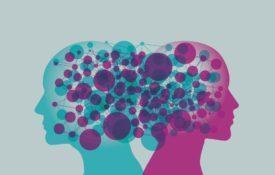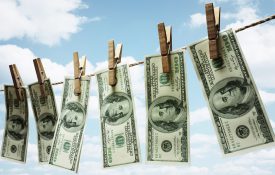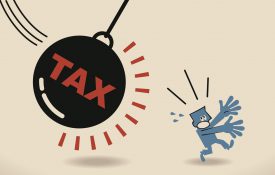
Patients are often resistant to the use of artificial intelligence in healthcare. But AI-assisted care could usher in a new era of personalized medicine.

APS members weigh in on the biggest opportunities and/or ethical challenges involving AI within the field of psychological science. Will we witness vast and constructive cross-fertilization—or “a dystopian cyberpunk corporation-led hellscape”?

Some of history’s most controversial psychology studies helped drive extensive protections for human research participants. Some say those reforms went too far.

Spurred by the so-called replication crisis, researchers are embracing a new culture of transparency.

Until recently, most research on dehumanization has focused on how viewing individuals and groups of people as “less than human” can lead to immoral acts.

Data from archival and experimental studies indicate that exposure to air pollution, either physically or mentally, is linked with unethical behavior such as crime and cheating.

Children who are praised for their intelligence may cheat to maintain their reputation.

Research suggests that obtaining a higher rank within an organization may prompt people to overlook unethical behavior.

In some of the most famous cases of money laundering, corporate fraud, and tax evasion lies a relentless appetite for big profits and personal wealth. How does greed affect our sense of morality?

Researchers propose that people behave immorally only to a certain extent so that they can profit from their misconduct but still feel moral.

Unethical behavior isn’t necessarily the price of doing business. An international research team highlights steps organizations can take to combat unethical behavior on the job.

Focusing on customer service can help to boost business performance, but high ethical standards also play an important role in driving these outcomes, researchers find.

Developing theory of mind, a critical social skill, may enable children to engage in the sophisticated thinking necessary for intentionally deceiving others.

Two experiments show that people are apt to cheat in favor of their self-interest but only when the situation is ambiguous enough to provide moral cover.

Despite the threat of penalties, some people decide that the government won’t be getting their tax money. Psychological science shows what motivates some to pay and others not.

Various factors -- including values and beliefs about what is correct, patterns of social orientation, and cost-benefit expectations -- interact to produce unethical behavior.

Research suggests that in order to hold their heads up high despite their bad behavior, individuals may strategically “forget” their own immoral deeds.

Online data collection makes recruiting study participants faster and easier, but at what cost? Psychological scientist Jennifer Rodd of University College London outlines the steps researchers should take to manage the uncertainty inherent in remote experimentation.

Research shows how math anxiety impacts students and suggests interventions to buffer these negative effects.

As workers in the United States continue to work more hours every year, the National Sleep Foundation finds that Americans on average are also gradually getting fewer hours of sleep each year. For many workers
